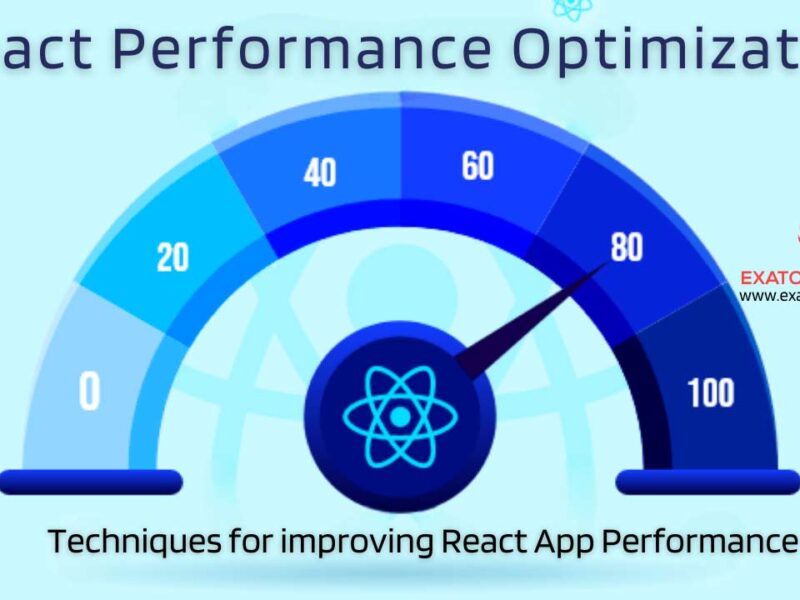Whether you’re a startup or an established business, if you want to stay ahead of the competition, you need to have a mobile shopping app. By 2025, mobile commerce is expected to reach $693 billion in the US alone. With numbers like that, it’s no wonder why businesses are clamoring to develop their shopping apps. But before you start the development process, there are a few things you need to know. In this guide, we will explore everything you need to know about developing a mobile shopping app development. From ideation to design to development and launch, we’ve got you covered. So read on and get started on your shopping app today!
The Market’s Size and Statistics

When it comes to shopping, more and more consumers are turning to their mobile devices. Mobile commerce sales are projected to reach $284 billion by 2020. And with over 2 billion active smartphones worldwide, it’s no wonder that businesses are looking to develop mobile shopping apps.
But before you start building an app, it’s important to understand the market and what your target audience is looking for. Here’s a complete guide to developing a mobile shopping app, including the market’s size and statistics.
Global retail e-commerce sales are expected to reach $4.5 trillion by 2021. Of that, m-commerce (mobile commerce) will make up 72% of total e-commerce sales.
In the US alone, there are 191 million smartphone users and 78% of them have made a purchase using their phone in the last 6 months. The most popular items purchased include clothes (57%), food & drink (54%), and tickets (51%).
When it comes to apps, US shoppers spend an average of 3 hours per week using shopping apps on their phones. The most popular shopping apps include Amazon (79%), Walmart (55%), Target (50%), eBay (48%), and Etsy (38%).
Why Is It A Good Idea To Invest In A Mobile Shopping App?
There are many reasons why investing in a mobile shopping app is a good idea. For one, mobile shopping apps are convenient for consumers. They allow users to shop for products and services from their mobile devices without having to go to a physical store. This can save time and money, as well as provide a more personalized shopping experience.
In addition, mobile shopping apps can help businesses boost sales and profits. By making it easier for customers to find and purchase products, businesses can increase their revenue. Mobile shopping apps can also help businesses tap into new markets and reach more consumers.
Finally, mobile shopping apps can help businesses build brand loyalty and customer loyalty. By providing a positive and convenient shopping experience, businesses can encourage customers to keep coming back. This can lead to repeat business and long-term relationships with customers.
Types For Mobile Shopping Apps
There are many different types of mobile shopping apps that businesses can develop. Some common types include:
1. Catalog apps:
These apps allow customers to browse and purchase products from a company’s catalog. They usually include features like search, filtering, and wishlists.
2. Marketplace apps:
Marketplace apps are similar to catalog apps, but they also allow users to sell products to each other. These apps typically have features like ratings and reviews, as well as payment and shipping options built-in.
3. Shopping mall apps:
These apps are essentially digital versions of brick-and-mortar shopping malls. They allow users to browse through multiple stores and make purchases all in one place. Many also offer GPS directions and store information, as well as loyalty programs and coupons.
4. Group buying apps:
Group buying apps allow users to pool their money together to get discounts on products or services. They usually require a minimum number of buyers to activate the deal, and often have a time limit as well.
5. Daily deals apps:
Daily deals apps offer steep discounts on local businesses and activities, typically for a limited time only. They usually have a “deal of the day” or “flash sale” format, which helps create a sense of urgency among users.
Revenue Model for on-Demand Mobile Shopping App Services
There are many revenue models for on-demand mobile shopping app services. The most common is a subscription model, where users pay a monthly or yearly fee to access the service. Other popular models include pay-per-use, advertising, and affiliate marketing.
The subscription model is the most straightforward way to monetize a mobile shopping app. Users pay a set fee to access the app’s features and content. This model is popular with businesses that offer digital content or services, such as streaming music or video, online courses, or e-books.
The pay-per-use model charges users for each transaction they make within the app. This could be a one-time fee for purchasing an item or a recurring fee for accessing certain features. For example, some mobile shopping apps charge users a small commission when they purchase the app.
Advertising is another common way to monetize mobile shopping apps. Businesses can sell space within the app to advertisers, who will then display their ads to users. This revenue model works well for apps that have a large audience and high levels of engagement.
Affiliate marketing is another option for monetizing mobile shopping apps. In this model, businesses earn commissions from sales made by users who click on links within the app. This can be an effective way to generate revenue if the app has a large and engaged user base.
A Shopping Application’s Must-Have Features
A shopping application must have the following features:
1. User-friendly interface:
The interface of the shopping app must be user-friendly and easy to navigate.
2. Product catalog:
The app must have a comprehensive product catalog that includes all the relevant details about the products.
3. Shopping cart:
The app must have a shopping cart feature that allows users to add items to their cart and purchase them later.
4. Payment gateway:
The app must have a payment gateway that supports various payment methods such as credit card, debit card, or net banking.
5. Customer support:
The app must have customer support in case users face any issues while using the app.
Features of the Shopping / Detailer Panel Mobile Shopping App Development
Our mobile shopping apps are designed to help shoppers save time and money. With our app, shoppers can easily browse and search for items, compare prices, read reviews, and find the best deals. Our app also provides a convenient way for shoppers to keep track of their shopping lists and track their progress toward their savings goals.
Features of the Admin Panel Mobile Shopping App Development
The admin panel mobile shopping app development is a complete and powerful solution for those who want to develop a mobile shopping app. It provides all the features that are necessary to develop a successful mobile shopping app.
Some of the feature-rich and user-friendly features of the admin panel mobile shopping app development are as follows:
Development Environment:
The admin panel provides a complete development environment for developing your mobile shopping app. All the tools and resources that are required for developing a successful mobile app are available in the admin panel. You can use the drag-and-drop interface to easily create the desired look and feel for your app.
App Store Optimization:
The admin panel also provides powerful App Store Optimization (ASO) tools to help you promote and market your app effectively. With ASO, you can improve your app’s visibility in the App Store and drive more traffic to your app.
In-app Purchases:
The admin panel also supports in-app purchases so that you can easily sell products or services through your mobile shopping app. You can use the built-in payment gateway to process transactions securely.
Push Notifications:
The admin panel also supports push notifications so that you can keep your users informed about new products, special offers, and other important updates.
The Advantages of Using an On-Demand Mobile Shopping App Development
The internet has revolutionized the way we shop. It’s now possible to buy almost anything you need with just a few clicks of a button. This convenience is one of the main reasons why online shopping has become so popular.
However, there are still some people who prefer to do their shopping in-store. They like being able to see and touch the items they’re buying before they make a purchase.
But what if there was a way to combine the best of both worlds? That’s where on-demand mobile shopping apps come in.
On-demand mobile shopping apps allow you to shop for items online and then have them delivered to your door within a matter of hours. This is perfect for those times when you need something urgently and doesn’t have time to go to the store.
There are many other advantages of using an on-demand mobile shopping app development, such as:
1) You can shop from anywhere at any time: On-demand mobile shopping apps give you the freedom to shop whenever and wherever you want. Whether you’re at home or on the go, you can access your favorite stores and make purchases quickly and easily.
2) You can avoid crowds and save time: Shopping in-store can be stressful, especially during peak periods such as weekends and holidays. With an on-demand mobile shopping app, you can avoid the crowds and shop at a time that
What Does It Cost for a Mobile Shopping App Development?
The cost of developing a mobile shopping app can vary depending on the features and functionality you want to include. A basic app with simple features may cost around $5,000 to develop, while a more complex app with multiple features could cost upwards of $50,000. The price also depends on whether you plan to develop the app yourself or hire a professional development team. If you hire a team, you can expect to pay an hourly rate for their services. The average hourly rate for mobile shopping app development is between $100 and $150 per hour.
Conclusion
The process of Develop eCommerce software is lengthy and intricate, and it might be intimidating at first. However, with the proper vendor, you may easily and quickly construct a shopping app. Exato Software is a group of specialists in creating custom software that can provide you with the best online shopping app for your unique requirements. To find out more about creating an online store and to receive a project quote, get in touch with Exato Software. Our team is prepared to work with your idea to develop a powerful application that powers your company.



